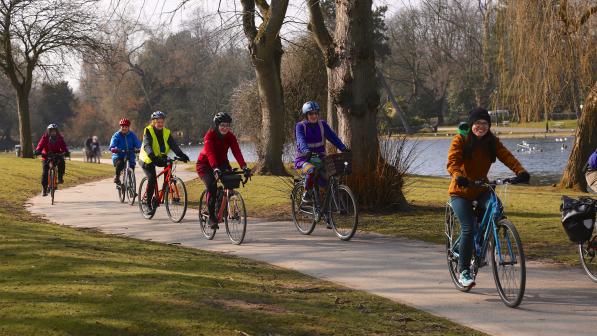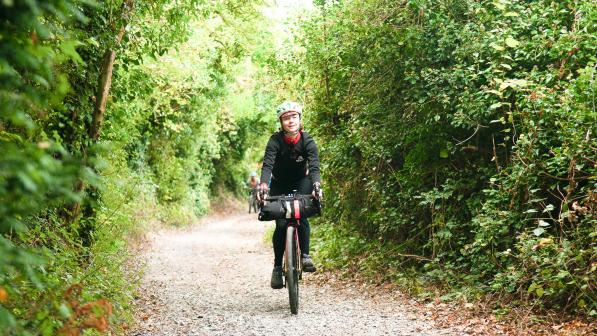Cycling UK calls for clarity on English exercise rules

With lockdown rules back in place across England, exercise is once again one of the few "reasonable excuses" for leaving home. However, contradictory guidance and lack of legal definitions mean that many people are confused about what is permitted.
Last week, police in Derbyshire issued £200 fines (later rescinded) to two women who drove a few miles to go for a walk carrying takeaway cups of tea. At the weekend, there was outrage when Boris Johnson was spotted cycling in a park seven miles from his home. The public are being told to "stay local", but there is no clarity on what that means.
Today, Cycling UK, along with British Cycling and British Triathlon, has written to Oliver Dowden, the secretary of state for digital, culture, media and sport, to call for an end to the confusion.
Since the start of the pandemic, Cycling UK has provided regularly updated advice for cyclists on how to exercise safely while complying with local regulations. However, many members have contacted us to ask for further detail on exactly what is allowed: detail which we are currently unable to provide because, at least in England, the official position is not clear.
Duncan Dollimore, head of campaigns at Cycling UK, explains the problem: "The English coronavirus regulations state that people must stay at home and only leave for permitted reasons, which include exercise either alone, with members of your household, or with one other person while observing social distancing. Breaching these regulations is a criminal offence.
"However, in addition to the regulations, there is also 'guidance', which is advisory and not set out in law. Among the guidance is a recommendation that exercise should be limited to once per day, and that you should stay within your local area. Neither of these is a legal requirement, and nor is there any definition of 'local area' within the regulations. Therefore trying to give specific advice is impossible without applying our own interpretation to unclear guidelines."
The guidance does advise people to stay within the "village, town or part of city" in which they live, but as the letter – signed by Cycling UK chief executive Sarah Mitchell – points out: "Over recent days comments from both the health secretary, Matt Hancock, and Metropolitan Police commissioner, Cressida Dick, have suggested interpretations of the rules which appear to be less restrictive than those stated above, which has given rise to further confusion amongst our members and indeed people across the country.
Our strong belief, which is backed up by evidence from the scientific community, is that exercise which begins and ends at an individual’s front door, and where appropriate social distancing protocols are observed throughout, presents an incredibly small risk of transmission, and the government should consider making this the basis of its guidance for outdoor exercise.
Letter from Cycling UK, British Cycling and British Triathlon to DCMS
It continues: "Our strong belief, which is backed up by evidence from the scientific community, is that exercise which begins and ends at an individual’s front door, and where appropriate social distancing protocols are observed throughout, presents an incredibly small risk of transmission, and the government should consider making this the basis of its guidance for outdoor exercise.
"There will of course be a need to allow people to travel short distances to access safe places such as parks and green spaces to exercise – such as families and those living around busy and fast-moving roads – and additional clarity on this would be welcomed also."
Cycling UK's view is that outdoor activity is vital to the physical and mental wellbeing of the nation at a time of crisis, and while the government should be applauded for its recognition of the importance of daily exercise, clarification of the rules is vital if people are not to be discouraged from staying active or vilified for doing so.
If and when the government responds, Cycling UK's advice will be updated accordingly.


